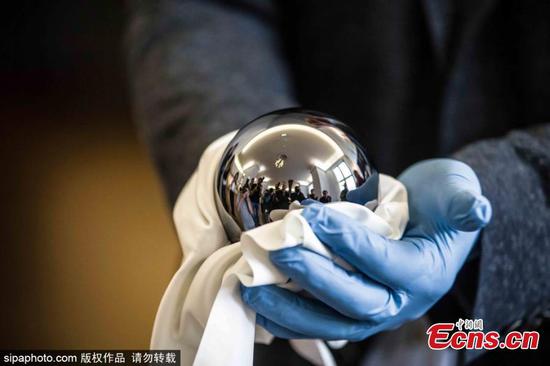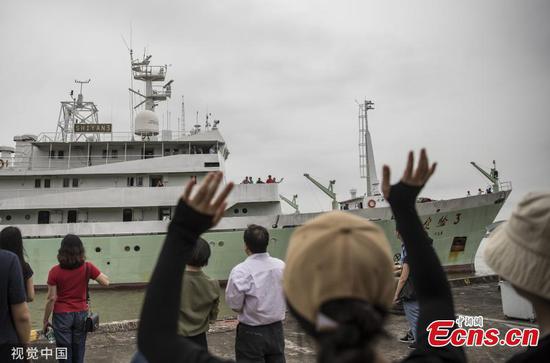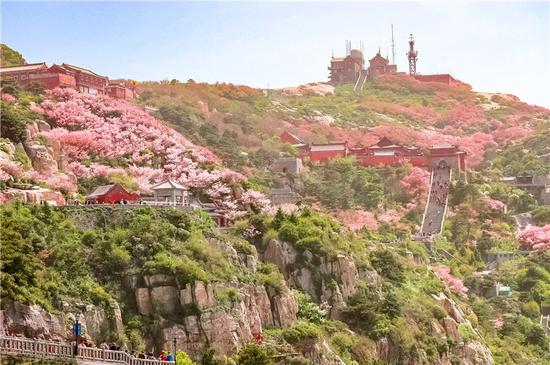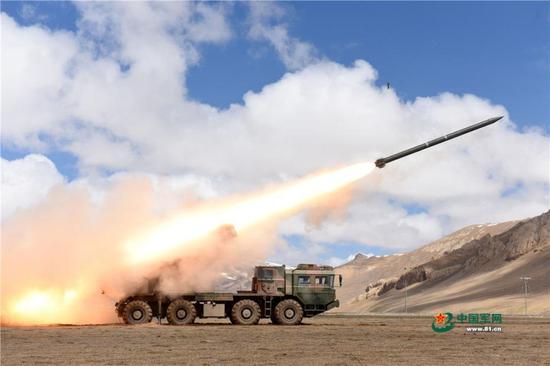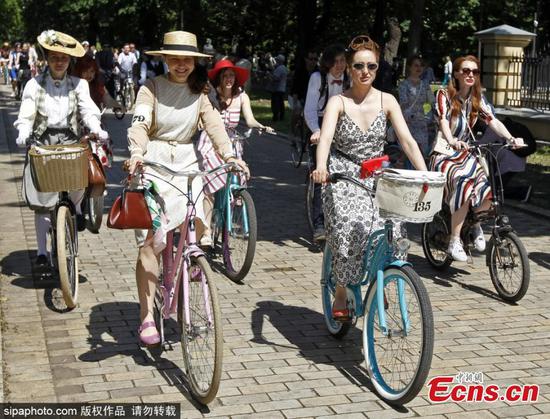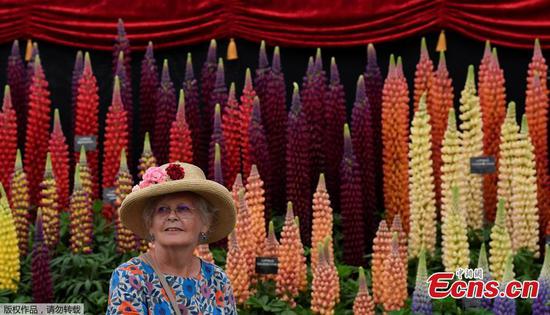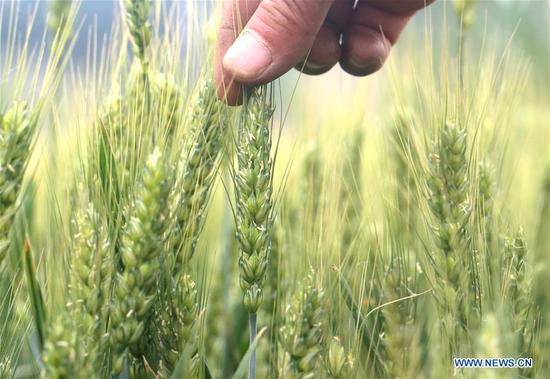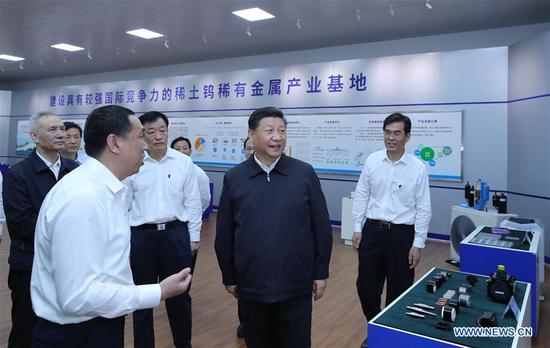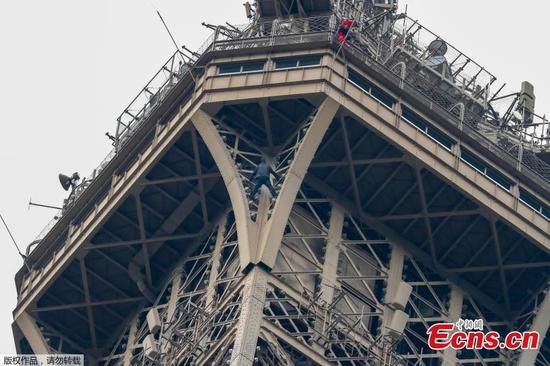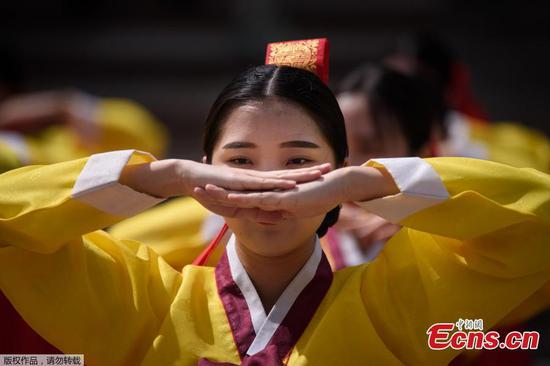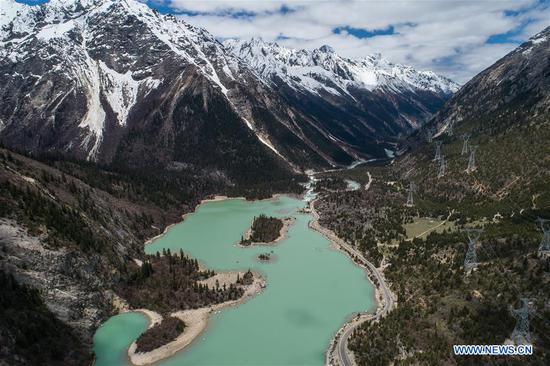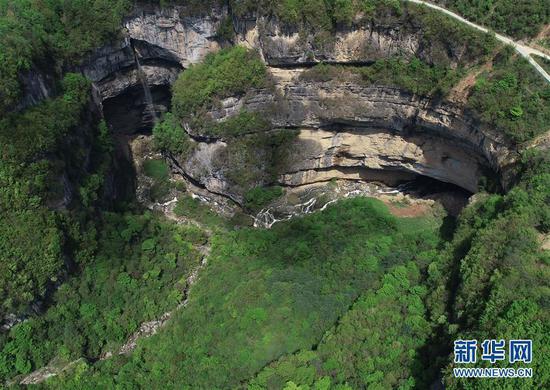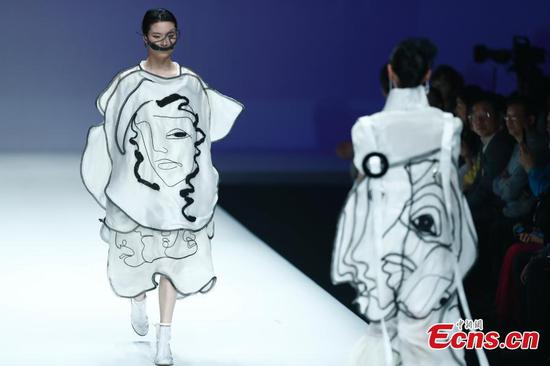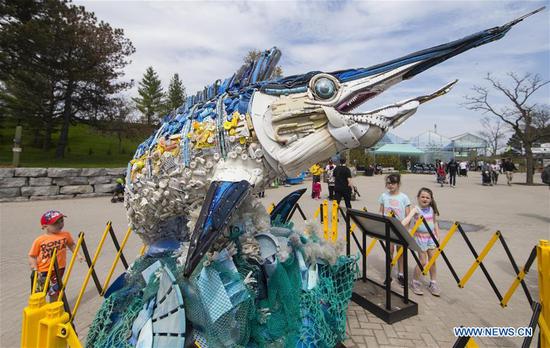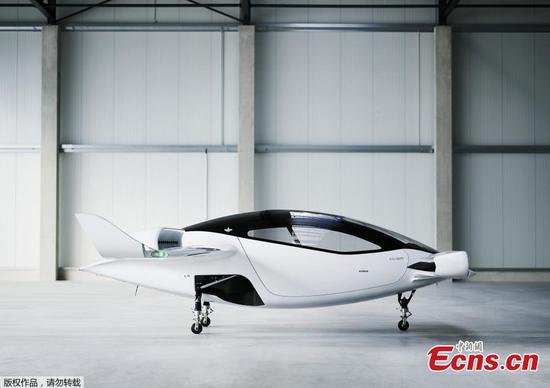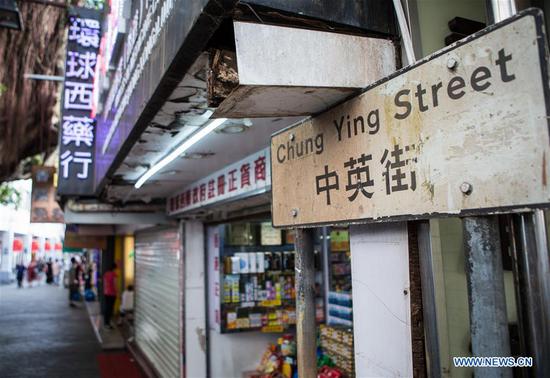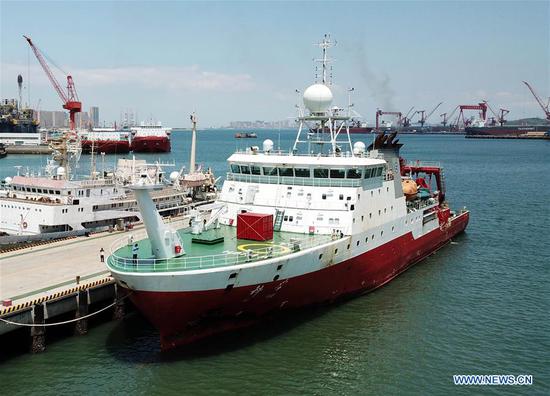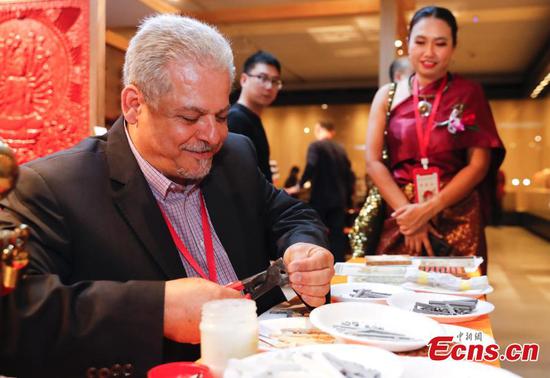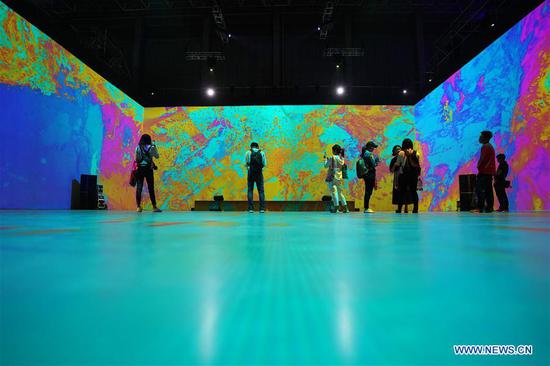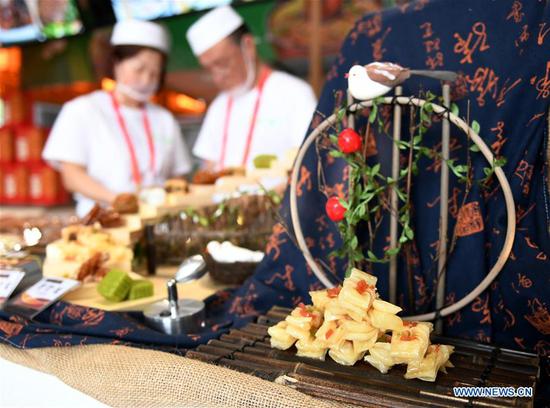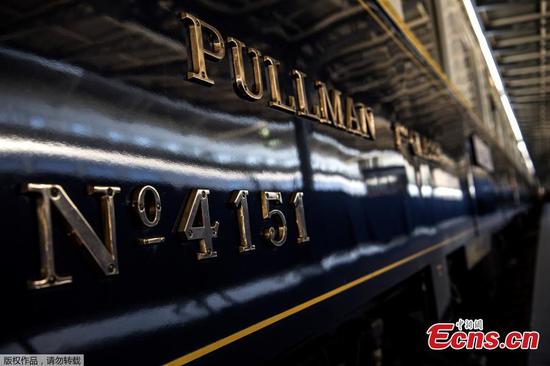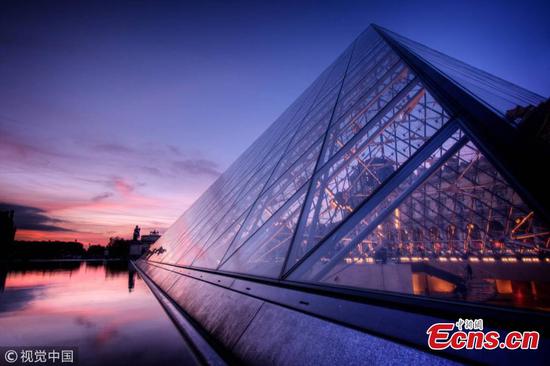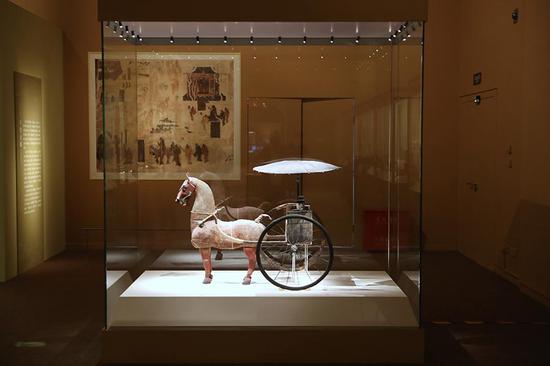Indonesian General Elections Commission (KPU) released the official results of the April 2019 presidential election on early Tuesday morning, data shows that incumbent President Joko Widodo has won the election by a margin of 55.5 percent of the vote while his rival, ex-general Prabowo Subianto, got 44.5 percent.
Widodo is set to start his second term of 5-year presidency in October this year. Observers believe that his victory shows that the public has casted a "confidence vote" on his first term of office, and Widodo, who has been re-mandated by voters, is expected make a push of greater in-depth reforms.
However, experts also warn that Indonesia is highly dependent on foreign capital to fund its current account deficit, and its economic growth will continue to face the risk of capital outflows and currency depreciation.
PERFORMANCE WIDELY RECOGNIZED
Widodo's victory is not a surprise. Pre-election polls generally showed that Widodo's electability led his opponent by a double-digit percentage. From the results released by KPU, votes obtained by Widodo were in line with expectations. Analysts believe that the good governance performance in the first tenure is the key to the success of Widodo.
The president, 57, is a grassroot politician and is considered to be Indonesia's first president from outside the nation's ruling elites. The former furniture businessman rose to national prominence after elected mayor of Surakarta in central Java in 2005, and seven years later, he became governor of Jakarta.
Elected as president in 2014 though, Widodo maintains the habit of "blusukan", an impromptu visit to nearby traditional markets or the slums in Javanese language. He keeps a smiling face wherever he goes, and the friendly and low-profile personality has gained him loyal support from the lower class.
Widodo has successfully pushed massive infrastructure program since 2014, including the building of highways, airports, seaports, and dams all over the vast archipelago country, especially areas outside the most populous and developed Java Island. These projects have started to deliver benefits as they creat jobs, cut logistic cost and inflation rate.
The poor and lower middle classes also strongly back Widodo as he introduced a universal national health care program, free schooling for 12 years, and cash transfers.
Under the leadership of Widodo, Indonesia successfully hosted the 2018 Asian Games, gained the majority stakes in one of the world's largest copper-gold mine in Papua province from foreigners. In March, Indonesia opened its first subway line in the capital city, Jakarta. Analysts say these moves have enhanced the country's cohesiveness and pride.
Incumbent Widodo, whose tenure saw an average gross domestic product (GDP) growth of 5 percent, has tackled higher fiscal deficits and brought the country back to a full investment grade rating for the first time in two decades.
Comparing with Widodo's complete track record as a government executive, Prabowo has never had the experience of serving in the government, and there is no "visible and tangible" governing experience from him.
Although Prabowo also emphasized boosting economy by slashing tax rates, curbing imports, developing manufacturing, and reducing social inequality in the campaign, analysts said that Prabowo's program lacks details of implementation.
EMPHASIZE ON INTERNAL AFFAIRS, DIPLOMACY
Widodo promised to voters in the campaign that if elected, he will continue to push forward the large-scale infrastructure projects and focus on developing human capital and skills training in his second term.
In addition to raising social welfare spending, Widodo pledged to accelerate the implementation of the "Industry 4.0" roadmap for tech upgrades in manufacturing and prioritize the growth of sectors of automobiles, food, high-tech, chemicals, and agriculture, which Widodo thinks can reduce the dependence of the Indonesian economy on commodities exports.
Xu Liping, a researcher on Asia-Pacific studies at the Chinese Academy of Social Science, said Widodo would continue his current development policies in his next term and the economy was expected to see a steady development trend.
Xu also believed that the pace of infrastructure development in the country would continue to accelerate, and the quality of Indonesia's labor force would improve, the competitiveness of Indonesia would continue to increase in the next five years.
Investors have shown confidence in the Indonesian economic prospects after unofficial quick counts showed that Widodo led his opponent, evidenced by the opening rise of 1.4 percent and 0.6 percent of the stock market and Indonesian currency Rupiah exchange rate in the opening of the first trading day of the financial market after the election.
Analysts said Widodo's free and active foreign policy gained Indonesia a comfortable neutral position among major powers and they also expressed optimism on the China-Indonesia relations after the re-election.
Jusuf Wanandi, co-founder of think tank, the Indonesian Center for Strategic and International Studies, told Xinhua that the result of the 2019 presidential election was positive for the future relationship between the two countries.
"Widodo, who is mandated again by most voters, is expected to be more active in developing friendly relations with China. The cooperation between the two countries will be deeper and the bilateral relations will be closer," he said.
CHALLENGES AHEAD
Widodo will officially take oath as president in October. But analysts said that it was not an easy journey ahead.
Indonesia is an emerging economy facing chronic current account deficits. Foreign capital is crucial to plugging the deficit and maintaining the stability of the Rupiah and financial markets.
Due to capital outflows, Rupiah exchange rate depreciated by 6.89 percent against the U.S. dollar in 2018, the lowest level since the Asian financial crisis in 1998. The Indonesian central bank was forced to raise interest rates six times, a total of 1.75 percent, to safeguard the currency.
At the same time, Indonesia has been stagnating in attracting foreign direct investment (FDI) in recent years. Indonesia lured FDI of some 29.3 billion U.S. dollars last year, down 8.8 percent year-on-year.
Widodo needs to open up more sectors to foreign investors, fight corruption, streamline investment processes and eliminate investment barriers to attract more capital inflows in his new term, according to analysts.
Meanwhile, despite the country's unemployment rate falling to 5.34 percent, the lowest in almost 20 years, of the 127 million people who are working, about a third are underemployed, and many millennials are disappointed with the government as it is not easy for them to find ideal jobs.
Analysts said Widodo needs to introduce more economic stimulus packages to further spur growth and create more job opportunities in the context of a slowing global growth and increasing policy uncertainty.










